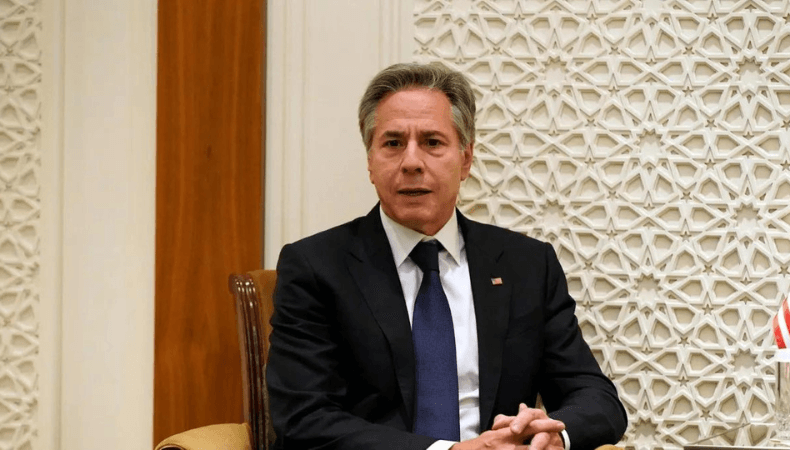Secretary Blinken’s Diplomatic Mission in the Middle East: A Critical Analysis

Secretary of State Antony Blinken has embarked on his fifth visit to the Middle East since the eruption of conflict between Israel and Hamas on October 7. His mission revolves around multifaceted discussions concerning the control of Gaza, efforts to prevent the escalation of the war, and negotiations with Hamas regarding the release of hostages.
The Complex Landscape: Challenges and Strategies
In a recent statement, Secretary Blinken emphasized the unprecedented volatility in the region, asserting that the current situation poses a level of danger not witnessed since at least 1973. National Security Council spokesman John Kirby echoed this sentiment, highlighting the severity of ongoing negotiations. Kirby reported on active discussions involving CIA Director William Burns, high-ranking Israeli and Egyptian intelligence officials, and Qatar’s prime minister.
The Stakes: Hostages, Defense Strategies, and Governance
One of the primary focuses of Secretary Blinken’s diplomatic efforts is the delicate issue of hostages held by Hamas. The negotiations extend to devising effective defense strategies for Israel against terrorist threats and addressing the governance challenges in Gaza.
Assessing the Regional Landscape
In delving into the intricacies of the situation, it becomes evident that the Middle East is currently at a crossroads of heightened tensions and complex geopolitical dynamics. Secretary Blinken’s repeated visits underscore the gravity of the challenges faced by the international community in managing the crisis.
Blinken’s Perspective: Navigating Uncharted Waters
Secretary Blinken’s acknowledgment of the dangerous landscape reflects the nuanced perspective guiding the United States’ diplomatic approach. Understanding the historical context and the evolving nature of the conflict is essential in grasping the intricacies of the ongoing negotiations.
Ongoing Diplomacy: Moving in the Right Direction
While Secretary Blinken has expressed the severity of the situation, there is optimism regarding the ongoing diplomatic efforts. National Security Council spokesman John Kirby’s statement indicates that negotiations have been active and are progressing in a positive direction. This optimism offers a glimmer of hope in the midst of the complex challenges faced by the region.
In conclusion, Secretary Blinken’s diplomatic mission to the Middle East is a testament to the urgency and complexity of the issues at hand. As negotiations continue, the international community watches closely, recognizing the significance of finding diplomatic solutions to the pressing challenges in the region.




